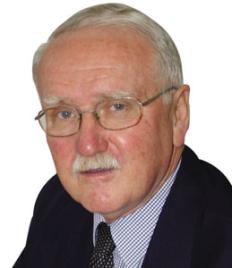 I often reflect on the criticism that some Christians are “so heavenly-minded they are no earthly good”. This is a caricature with an element of truth in it. It is the criticism of many atheists who feel that because we have a heavenly escape clause our hearts are not entirely in the struggles of this world. This is probably reinforced for us at Easter. For many Christians the meaning of resurrection is that because Jesus rose from the dead we too will rise, leave this world and go to our true home in heaven where we will find rest with God.
I often reflect on the criticism that some Christians are “so heavenly-minded they are no earthly good”. This is a caricature with an element of truth in it. It is the criticism of many atheists who feel that because we have a heavenly escape clause our hearts are not entirely in the struggles of this world. This is probably reinforced for us at Easter. For many Christians the meaning of resurrection is that because Jesus rose from the dead we too will rise, leave this world and go to our true home in heaven where we will find rest with God.
Of course we believe and hope that we will rise again but this is not the full meaning of the resurrection. The early Christians understood Jesus’ resurrection as the vindication of his life and preaching and especially of his vision of the Reign of God. For them, his death and resurrection ushered in a radically new age, a new creation. They were concerned with this world, not the next.
Jesus came to live, not to die, and he came that we all might have life and have it to the full (Jn 10:10). From the beginning of his ministry he was conscious of two things: the power of evil and the fact that something radically new and wholesome was happening, “The Kingdom of God was at hand” (Mk 1:15). His whole life was a struggle against evil, against anything that would stifle love and life especially for the marginalised people whom he loved. Jesus did not choose to die. He was killed because of a life of generous, courageous and uncompromising love.
He knew the power of evil and chose not to defeat it by force but by suffering evil, not allowing it to define or determine him but exhausting it. Like Isaiah’s Suffering Servant he did not fight back. He did not “put out the flickering flame or crush the bent reed”. He continued to love.
Jesus’ resurrection does not take away pain, betrayal or death but it enables us to face these things.
Jesus died and rose so that the Reign of God might be established. For us Christians, it is a gift but also a challenge, not only of the present but also of the future; something to celebrate and to help build. We know that the Kingdom is present when we see people striving for justice, peace, truth, freedom and reconciliation between peoples, religions and with the environment.
We know it is present in ourselves when we can live in the world without despair, when we can join in the struggle for peace, justice and a sustainable and reconciled world, when we know that we are loved by God and can accept joy and peace and the love of others, when we can celebrate goodness no matter where it comes from and when we can love others generously and creatively.
Fr Noel Connolly
director@columban.org.au
Read more articles From The Director